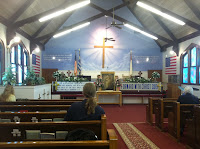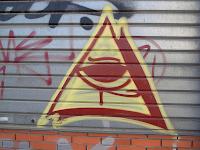The book of Enoch
 As I start researching angels for another writing project, I started in the book of Jude. There is an interesting curiosity in the book of Jude. Jude, the brother of James, presents some incredible revelations about angels and then quotes the prophet Enoch. If you recall, Enoch was mentioned, BRIEFLY, in the book of Genesis.
As I start researching angels for another writing project, I started in the book of Jude. There is an interesting curiosity in the book of Jude. Jude, the brother of James, presents some incredible revelations about angels and then quotes the prophet Enoch. If you recall, Enoch was mentioned, BRIEFLY, in the book of Genesis.Genesis 5:21-24
21 When Enoch had lived 65 years, he became the father of Methuselah.
22 And after he became the father of Methuselah, Enoch walked with God 300 years and had other sons and daughters.
23 Altogether, Enoch lived 365 years.
24 Enoch walked with God; then he was no more, because God took him away.
In verse 24, we see that God took him away. Very seldom is Enoch mentioned again in the books of the Bible. Now in Jude, we have a quote in the book of Jude from the prophet of Enoch.
Jude 14-16
14Enoch, the seventh from Adam, prophesied about these men: "See, the Lord is coming with thousands upon thousands of his holy ones 15to judge everyone, and to convict all the ungodly of all the ungodly acts they have done in the ungodly way, and of all the harsh words ungodly sinners have spoken against him." 16These men are grumblers and faultfinders; they follow their own evil desires; they boast about themselves and flatter others for their own advantage.
Here in the book of Jude, Enoch is prophesying about the second coming of Jesus. Who is Enoch?
Adam -> Seth -> Enosh -> Kenan -> Mahalalel -> Jared -> Enoch!!!!
The seventh descendent of Adam is prophesying about the second coming of Christ! We haven't even encountered Noah and the history of the flood.
Where did the prophecy of Enoch come from? Why from the book of Enoch, of course. Jude 14-16 seems to come from Enoch 1:9.
Enoch 1:9
9And behold! He cometh with ten thousands of His holy ones
To execute judgement upon all,
And to destroy all the ungodly:
And to convict all flesh Of all the works of their ungodliness which they have ungodly committed, And of all the hard things which ungodly sinners have spoken against Him.
Some interesting and very wild history and prophecy seems to be in the book of Enoch. The reference of the angels bound in chains may come from the book of Enoch as well.
Jude 6
6And the angels who did not keep their positions of authority but abandoned their own home—these he has kept in darkness, bound with everlasting chains for judgment on the great Day.
As I read more into Jude and the parallels of the book of Enoch my inquisitive side of my brain wanted to dive in more to the book of Enoch. However, the book raises more questions than answers. I decided to do some investigating on this amazing book. If Jude quoted from this book, he must have read the book (scroll) and received teaching from it.
J.R. Church of the www.prophecyinthenews.com web site claims the book of Enoch was taken on aboard Noah's ark during the great flood. This made the book of Enoch even more fascinating to me. My scientific mind did some googling and I asked experts about the book of Enoch. The experts said the book of Enoch may have originated around 300 B.C. Which is far short of the claim made by J.R. Church.
Here is the e-mail response I received from Marilyn Lundberg, Ph.D, Associate Director of West Semitic Research.
Dear Mike,
The earliest copies of Enoch are from Qumran, among the Dead Sea Scrolls. These works on Enoch are considered part of what is called the pseudepigrapha, books that were written in the name of early biblical characters during three centuries before Christ. They were not in existence during the time of David and Solomon. The longest version is "an Ethiopic translation of a Greek translation of its Aramaic original." Fragments in Aramaic were found among the DSS.
Based on the experts, this book was not written by Enoch, and at best pre-dates Christ by only 300 years. This doesn't discredit the works in the book. But it does discredit the information put out by J.R. Church. There is a huge leap in history from 300 B.C. to the time of Enoch. My research was hoping to substantiate the fact that the book of Enoch was at the least, in the hands of David or Solomon. And this is not substantiated in the scientific community. I would like to know the scholars who can place the book of Enoch as being in the temple during the time of David or Solomon.
The book of Enoch is definitely a unique book and discusses the Nephilim as discussed in Genesis 6. There are a lot of questions right now that need to be answered before we can use the book of Enoch as the mis-linking (so to speak) that glues Genesis to the book of Jude and prophecy. The book is obviously a part of early Christian history and makes for an interesting read. At the moment I would be hesitant to make the huge connection of the book of Enoch being aboard the ark of Noah as J.R. Church claims. I respect the man and I love the information, I just think he is being disingenuous to make the claim without presenting the evidence. If Church knows credible scholars who can back up this claim, then we need to know. I am not denying the validity of the book or Church's claims. I would just like to see the evidence he uses to support the comment made that the book of Enoch may have been on Noah's ark. Was this book used during the time of David or Solomon? I would settle for that answer for the time being. What we can't deny there is definitely a correlation between the book of Jude and the book of Enoch.



Very interesting! I, too, am quite intrigued by the books that were used by the the early church and even before but were left out of the Bible. I've read that the Roman church decided to leave out certain books from the Bible and it just makes me wonder if what we know as the Bible today is incomplete due to man's involvement. At the same time, I also wonder if maybe God made sure that the Bible we have today is exactly what He wants us to have.
ReplyDelete